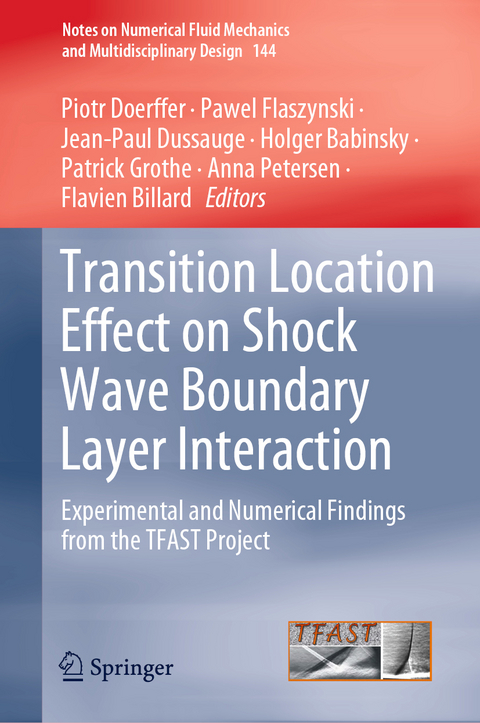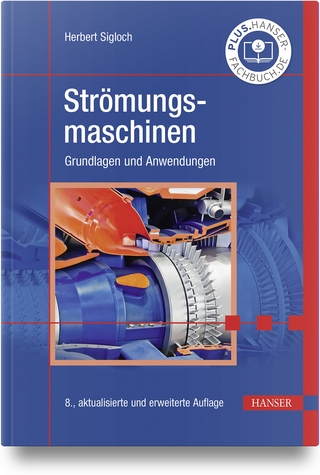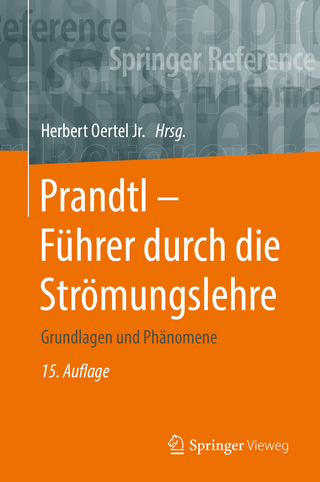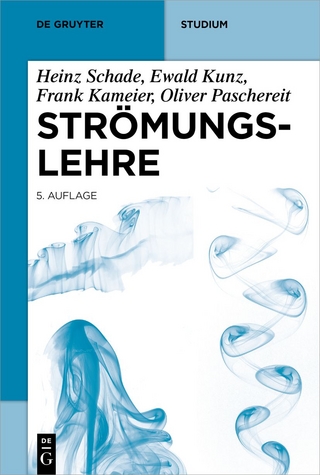
Transition Location Effect on Shock Wave Boundary Layer Interaction
Springer International Publishing (Verlag)
978-3-030-47460-7 (ISBN)
This book presents experimental and numerical findings on reducing shock-induced separation by applying transition upstream the shock wave. The purpose is to find out how close to the shock wave the transition should be located in order to obtain favorable turbulent boundary layer interaction.
The book shares findings obtained using advanced flow measurement methods and concerning e.g. the transition location, boundary layer characteristics, and the detection of shock wave configurations. It includes a number of experimental case studies and CFD simulations that offer valuable insights into the flow structure. It covers RANS/URANS methods for the experimental test section design, as well as more advanced techniques, such as LES, hybrid methods and DNS for studying the transition and shock wave interaction in detail. The experimental and numerical investigations presented here were conducted by sixteen different partners in the context of the TFAST Project.The general focus is on determining if and how it is possible to improve flow performance in comparison to laminar interaction. The book mainly addresses academics and professionals whose work involves the aerodynamics of internal and external flows, as well as experimentalists working with compressible flows. It will also be of benefit for CFD developers and users, and for students of aviation and propulsion systems alike.
Introduction - TFAST Overview.- WP-1 Reference Cases of Laminar and Turbulent Interactions.- WP-2 Basic Investigation of Transition Effect.- WP-3 Internal Flows - Compressors.- WP-4 Internal Flows - Turbine.- WP-5 External Flows - Wing.- Closing Remarks.
| Erscheinungsdatum | 02.08.2020 |
|---|---|
| Reihe/Serie | Notes on Numerical Fluid Mechanics and Multidisciplinary Design |
| Zusatzinfo | VIII, 540 p. 518 illus., 424 illus. in color. |
| Verlagsort | Cham |
| Sprache | englisch |
| Maße | 155 x 235 mm |
| Gewicht | 979 g |
| Themenwelt | Naturwissenschaften ► Physik / Astronomie ► Strömungsmechanik |
| Technik ► Maschinenbau | |
| Schlagworte | Compressible Flows • Compressor and Fan Blade Aerodynamics • fluid- and aerodynamics • High Pressure Turbine Blade • Hybrid RANS-LENS Methods • Induced Transition to Turbulence • Laminar and Turbulent Boundary Layer • Models of Flow Control Devices • Reduce Flow Separation • Shock Induced Separation • Simulations of 3-D transonic Wing • TFAST Project • Transition Location Effect • Transonic Turbine Flow • Transonic Wing Flow • URANS Methods |
| ISBN-10 | 3-030-47460-7 / 3030474607 |
| ISBN-13 | 978-3-030-47460-7 / 9783030474607 |
| Zustand | Neuware |
| Haben Sie eine Frage zum Produkt? |
aus dem Bereich


